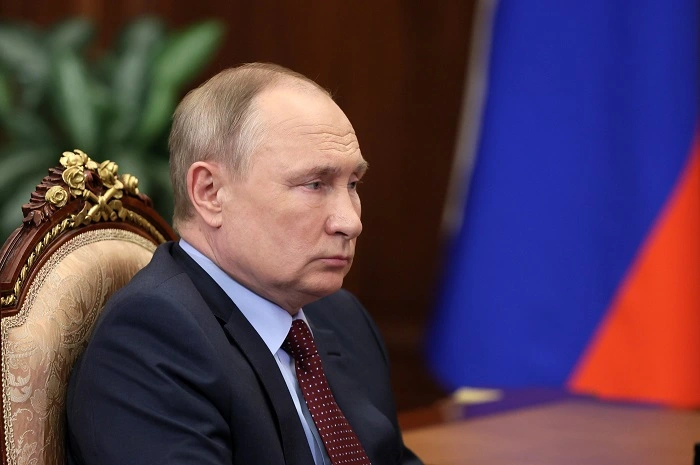Russia on Thursday said that it was ready to work out a peace formula with the West that will not only end the war in Ukraine, but also open a pathway for permanently ending tensions between the two sides.
Russia’s Deputy Foreign Minister Sergey Ryabkov told RBC on Thursday that Moscow was ready for a dialogue with the West on security guarantees and strategic stability issues.
"We are prepared for dialogue on these issues (security guarantees), as well as on issues related to strategic stability. We regret that our colleagues in Washington made a decision – and announced it several days ago – to suspend these contacts," he asserted. Ryabkov accused the United States for suspending the dialogue.

During an address to the Conference on Disarmament earlier on Tuesday, Russian foreign minister Sergey Lavrov had spelt out two key conditions that would end conflict in Ukraine.
He pointed out that Moscow was seeking legally binding security guarantees from NATO members. These security guarantees were of “fundamental importance” to ensure peace in the region.
"[Our] Western colleagues have not yet shown any willingness to provide Russia with long-term legally binding security guarantees… For us, achieving these objectives is of fundamental importance," Lavrov asserted.
The minister pointed out that NATO must, first, abandon the “Bucharest formula” that the grouping had adopted during its 2008 Bucharest summit. The Bucharest formula envisions inclusion of Ukraine and Georgia in the US-led military bloc. "Western countries should refrain from establishing military facilities on the territory of former USSR states that are not members of the alliance, including the use of their infrastructure for conducting any military activity.”
Second, NATO must follow the NATO-Russia Founding Act of 1997 which froze the grouping's military capabilities, including strike [capabilities], and NATO infrastructure to that year, Lavrov said.
Significantly, Lavrov implied that the Baltic states of Estonia, Latvia and Lithuania, which have already joined NATO, but were part of the USSR after World War II, are not on Moscow’s military radar.
Ryabkov in his interview pointed out that on December 17, 2021, the Russian Foreign Ministry issued draft agreements on the security guarantees that Moscow would like to receive from the US and NATO. The documents demand that NATO must cease its eastward expansion. It should also roll up its military infrastructure to the 1997 borders.
According to a Tass report, Washington and NATO handed over to Moscow their written responses to Russia’s security proposals on January 26, 2022. The West apparently in its response in February failed to make crucial concessions to Russia’s proposals.
Ryabkov pointed out that Russia and the US currently maintain their dialogue mainly through embassies. "We don’t have a reason to believe that this algorithm will change in the near future," he observed.
The Russian President has spelled out two other conditions for hostilities to end in Ukraine. Putin has made it plain that Ukraine must adopt a position of political “neutrality,” implying that Kiev should legally commit that it would not become a part of any military alliance.
Besides, the Russians want that the Ukrainian establishment must undergo de-Nazification. The Russian President was apparently referring to events of 2014 when neo-Nazis played a critical role in toppling an elected pro-Russian government following the Maidan Square “revolution”.
Also Read: Russia spells out four-point formula to end Ukraine war




















